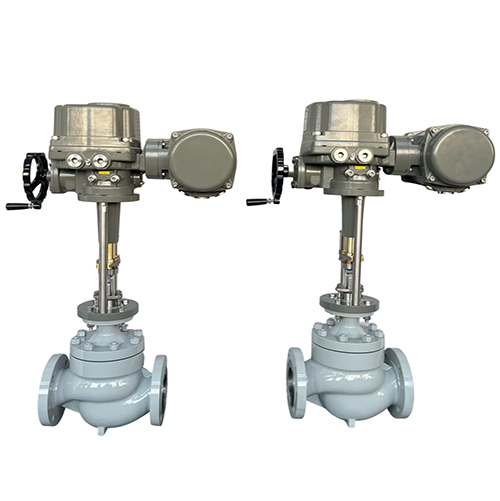Best Practices for Electric Control Valve Operation
An electric control valve is a widely used device in industrial control systems. It regulates the flow of fluid media to control system pressure, temperature, liquid level, and more, playing a crucial role in industrial production. To maximize the functionality of electric control valves and ensure their long-term stable operation, several key aspects must be considered during use.
1. Proper Installation of Electric Control Valves
Proper installation is the foundation for ensuring the normal operation of electric control valves. During installation, it is important to choose an appropriate location based on the actual conditions on site, ensuring the valve is easy to operate and maintain. Suitable installation accessories should be used to ensure a tight connection between the valve and the pipeline, preventing leaks. Care should be taken to avoid excessive stress or twisting on the valve during installation to prevent damage to the valve body and actuator.
2. Conducting Thorough Testing to Ensure Operational Status
Before putting an electric control valve into formal use, thorough testing is essential. The testing process includes checking the electrical connections to ensure they are correct, verifying that the electric actuator and valve operate in coordination, and setting the valve's opening degree and adjustment range. During testing, actual operating conditions should be simulated to ensure the valve can function normally under expected conditions, with smooth and flexible movements.
3. Regular Maintenance and Upkeep
Regular maintenance and upkeep are indispensable for ensuring the long-term stable operation of electric control valves. Maintenance tasks include cleaning the inside of the valve to prevent debris accumulation from affecting performance, inspecting for corrosion and wear, and timely replacement of damaged parts. Additionally, lubricating moving parts to reduce friction and periodically checking the motor and control system to ensure secure connections and normal operation are essential.
4. Strict Adherence to Operating Procedures
Strict adherence to operating procedures is crucial when using electric control valves. Operators should receive professional training to understand the working principles and usage methods of the valves, ensuring compliance with safety standards and operational protocols during use. Extra caution is required when remotely controlling the valves to avoid accidental operations that could cause equipment damage or production accidents.
5. Attention to Electrical Safety
Electric control valves use electrical power as their energy source, necessitating particular attention to electrical safety during use. The motor and control system should be securely connected and properly grounded to prevent leakage and short circuits. Operators should follow electrical safety regulations, regularly inspect the insulation and grounding of electrical equipment, and take precautions to prevent electric shocks and fires.
6. Regular Performance Checks
As an electromechanical device, the performance of electric control valves requires regular checks. This includes periodic inspection of the valve's opening degree, closure status, and adjustment range to ensure it operates within the specified parameters. Relevant data should be recorded and analyzed to identify and resolve issues promptly, ensuring system stability and reliability.
7. Selecting the Right Electric Control Valve
Selecting the right electric control valve involves considering specific working conditions and the properties of the fluid media. Factors such as the type of fluid, temperature, pressure, flow rate, and the corrosiveness and viscosity of the medium must be taken into account. Additionally, the valve's performance, reliability, cost, and the manufacturer's reputation should be evaluated to choose a cost-effective product that meets process requirements and ensures long-term stable operation.
Electric control valves play a vital role in industrial production. By ensuring proper installation, thorough testing, regular maintenance, strict adherence to operating procedures, and attention to electrical safety, the high-efficiency and stable operation of electric control valves can be achieved, enhancing production efficiency and safety. Rational selection and scientific use of electric control valves not only optimize industrial process control but also extend equipment life, reduce maintenance costs, and promote the advancement of industrial automation.

